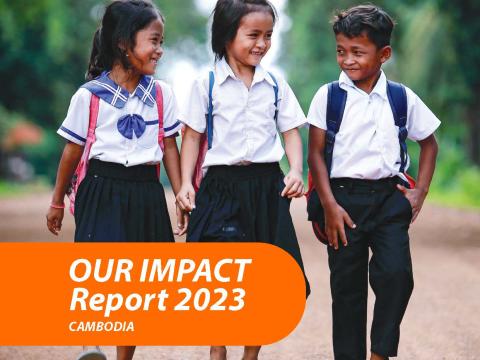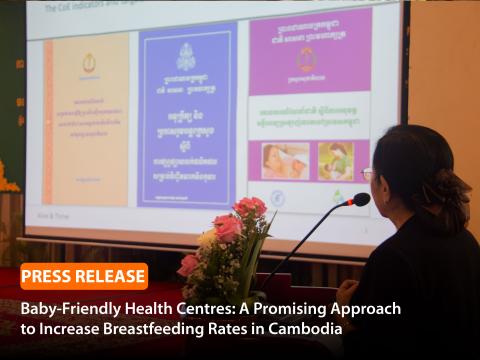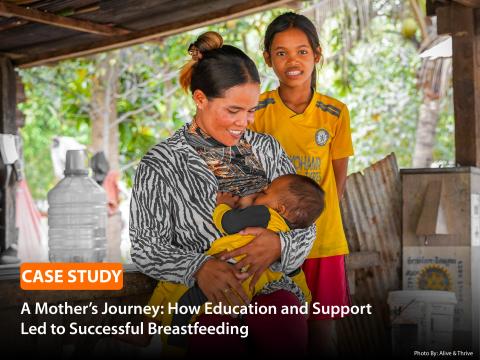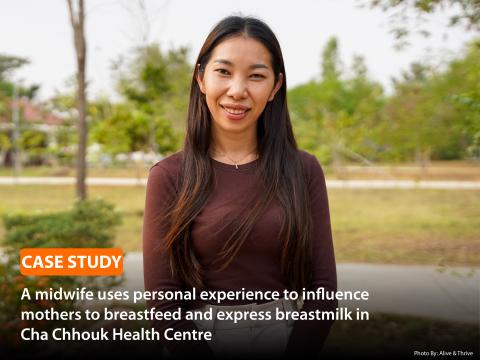Promotion of Baby-Friendly Health Centres (BFHC)
Download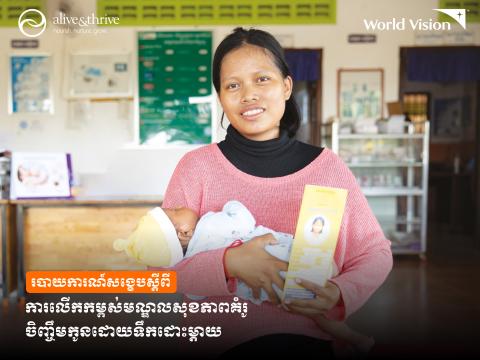
World Vision International in Cambodia, along with Alive& Thrive/FHI 360, equipped eight Health Centres in Siem Reap Province as Baby-Friendly Health Centres (BFHC) to promote breastfeeding practices among the women who delivered in those Health Centres through the ‘Mixed methods, prospective pilot study. This is a unique effort to build the Health Centres' capacity to effectively promote breastfeeding practices and promote them as “Baby Friendly Health Centres”. The key focus of this study was improving the early initiation of breastfeeding within one hour of delivery and strengthening breastfeeding practices to enhance the well-being of newborns and post-partum mothers.
Between the '90s and early 2000s, Cambodia showed impressive achievement in the percentage of children exclusively breastfed for the first 6 months; however, it decreased from 74% in 2010 to 51% in 2021. In addition, the country registered low rates of early breastfeeding initiation, with only 54% of new-borns breastfed within 1 hour of birth, even though 98.7% of the births are delivered by skilled birth attendants in Cambodia according to the Cambodia Demographic Health Survey (CDHS) 2021-2022.
With declining rates of breastfeeding in the country, it is critical for health facilities to re-iterate the importance and benefits of breastfeeding to pregnant women, mothers straight after delivery and their family members, to enable mothers to make the most nutritious choices for their children. The findings from this pilot study present clear evidence that the Baby-Friendly Health Centre approach contributes to improved breastfeeding rates. Scaling up this approach could significantly impact child nutrition across Cambodia.
The Baby Friendly Health Centre (BFHC) approach follows the 10 steps of the global Baby Friendly Hospital Initiative (BFHI) led by UNICEF and WHO to promote and support breastfeeding practices. These steps include educating the staff, encouraging skin-to-skin contact after birth, providing breastfeeding guidance to mothers and families, and ensuring mothers have uninterrupted access to their babies for rooming-in and feeding on demand. In addition, BFHC discourages using formula or other fluids unless medically necessary and discourages using bottles, teats and pacifiers. The last step of the BFHC is to ensure that mothers have continued support for breastfeeding after discharge.
This study was implemented in close coordination with the National Maternal and Child Health Centre (NMCHC) and the Provincial Health Department (PHD) of Siem Reap. The capacity of the midwives in the target Health Centres improved over the one-year duration of the study, primarily due to the training and supervision visits that focused on breastfeeding promotion; as well as follow-up coaching visits conducted by the Provincial Health Department and the National Maternal and Child Health Centre.
The post-partum mothers who delivered in these health centres before and after the intervention have recorded improvements in breastfeeding experiences, better support from the Health Centre staff for breastfeeding and were well-informed about breastfeeding.
The learnings from this study are incorporated in the ongoing project funded by The Else Kröner-Fresenius-Stiftung (EKFS), Germany through World Vision Germany that reaches out to 34 Health Centres spread across Siem Reap and Preah Vihear provinces in Cambodia. The lifespan of this project is from October 2023 until September 2026.
